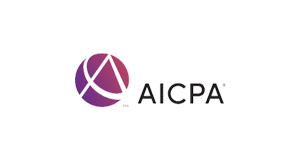I was recently listening to “The Great Retirement Debate,” a popular podcast co-hosted by Ed Slott, nationally recognized IRA expert, and Jeffrey Levine, Chief Planning Officer for Buckingham Strategic Wealth.
If you’ve never tuned in, these two go head-to-head each week, debating the pros and cons of various retirement strategies. In this particular episode, they discuss reasons someone nearing retirement might choose NOT to “Roth convert” some or all of the money in their traditional IRA or TSP.
I realize this idea sounds contradictory to what we usually advise at Christy Capital. On our YouTube channel, you can find multiple videos like this one about the benefits of Roth conversions. (This is also what Ed and Jeffrey typically advise.)
Today, however, I want to recap their eight reasons why Roth conversions might NOT be in your best interest.
- The tax burden now would be too much.
Paying taxes now so you don’t have to pay them later is one big advantage of Roth accounts. But depending on the tax bracket you’re in, it may not make sense to move your traditional IRA money to Roth and take on a bigger tax burden now.
If you’re in the 22% bracket or 24% bracket now, perhaps you’re okay paying that percentage in taxes now to do a Roth conversion.
But what if you’re in the 37% bracket now, and you’re pretty sure you’ll be in a lower tax bracket later? In that case, it makes sense to skip doing Roth conversions.
- Conversions could interfere with your charitable giving strategies.
Once you reach the age of 70 and a half, you can do what’s called a qualified charitable distribution (QCD), where you give money to charity directly from your IRA. When you do that, no taxes are owed.
If you’re charitably minded, this can be a more tax-efficient way to go about it once you hit age 70 and a half. However, you can only do this from a traditional IRA. You can’t do it from a traditional TSP. They just don’t allow it. In short, if you Roth convert everything and have zero traditional money, then you can’t do a QCD.
Depending on your situation–and how charitably minded you are–keeping some traditional money may be what’s needed. If this is you, then maybe Roth convert some, but not all of it.
- You want to see what U.S. tax policies will be.
If you’re unsure about future tax rates, you may wish to wait. Slott and Levine both think it’s safe to assume that tax rates will increase in the future. If they’re right, that might be a reason to do Roth conversions now.
But remember those Trump tax cuts that went into effect in 2018? That demonstrated that taxes don’t always go up. Sometimes they go down!
And yet, those tax cuts are set to expire at the end of 2025 (unless Congress acts). In that case, rates would go back up to where they were previously.
All this to say: If you want to see what tax trends will be, you may not wish to Roth convert yet.
- You think your beneficiaries will have a substantially lower income level than you have.
If you’re in a 37% tax bracket, but your heirs are likely to be in a 22% bracket when you die, this may be a good argument to say “no” to Roth conversions now.
- You anticipate having really large medical bills.
It’s not uncommon to see retirees have $50,000 to $100,000 of medical expenses in a single year. This can stem from hospital bills, long-term care costs, or even renovations to your home for health reasons.
If you anticipate you’d be paying such expenses from your traditional IRA, you may not want to Roth convert that money.
Here’s why: When you withdraw money from a traditional IRA, it is, of course, taxed. However, being able to claim medical expenditures as legitimate deductions offsets a lot of that tax burden. Depending on the amount, it may be better to cover these costs with money from a traditional IRA.
- Roth conversions are permanent.
Several years ago, it was possible to do a Roth conversion at the beginning of a year. Then, at the end of the year, if you changed your mind, you could do what was called a recharacterization and undo it. Beginning in 2018, that practice was disallowed.
- You want to take advantage of the QBI deduction.
A feature of the tax overhaul of 2017-18 was something called a qualified business income (QBI) deduction. The details of this can be complicated, but suffice to say this provision allows high-earning self-employed people to deduct up to 20% of qualified business income. However, if you do a Roth conversion at the wrong time can endanger this deduction opportunity. (Talk to a financial advisor to learn more.)
- You’re not convinced Roth accounts will always be tax-free.
Ed Slott doubts Congress will ever try to tax Roth accounts “if only because it would kill the golden goose.” (Roth IRAs produce a lot of tax revenue!)
However, the amount of money in traditional accounts in America is so much larger than the amount of money in Roth accounts. If the government wanted more tax dollars, all they would have to do is change the tax brackets. That would give them more of your income now, and more of the taxable money in your traditional IRA later.
Tax brackets do change, and people usually grumble. But if Congress went back and essentially double-taxed all Roth accounts, there would be an uproar! That tactic doesn’t make sense when all they have to do is raise tax rates.
So, there are eight reasons why you might NOT wish to move some or all of your traditional money to Roth. But, again, there are other situations where Roth conversions make perfect sense. To avoid future regrets, check out this video on Roth conversion mistakes.
That reminds me…if you don’t have a financial planner, we’d love to help you navigate other tricky questions like these. Just visit our website, christycapital.com. There–in the top right corner of the page–you’ll see a green TALK WITH AN ADVISOR button. Click it, and leave us a short message. We’ll be in touch right away.
At Christy Capital Management, our sole goal is to help you prepare for the best retirement possible.







